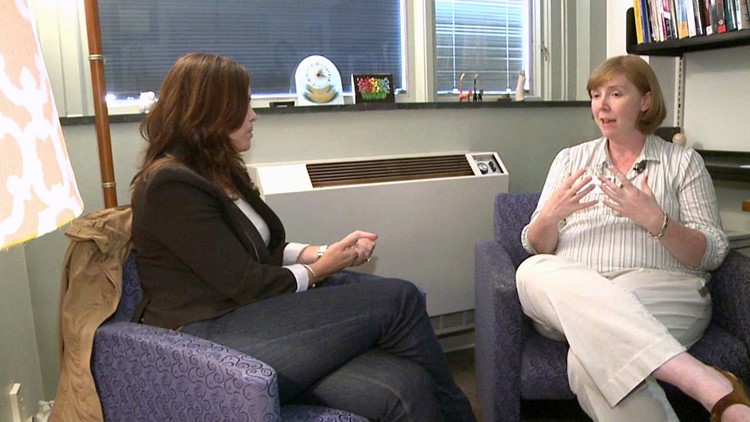The death of actor and comedian Robin Williams has brought to the forefront the topic of depression.
Mental health experts say depression is very common, but that arming yourself with some facts, and being aware of common signs that someone is struggling, could help save a life.
The news that celebrated actor and funnyman Robin Williams took his own life this week at the age of 63 hit his fans hard.
It also prompted the American Foundation for Suicide Prevention to release this statement on its website:
"It is our hope that we are able to have an open conversation that depression and addictions are real illnesses that can sometimes be fatal. Every 13 minutes someone dies from suicide, and it is among the top ten causes of death in the U.S."
"Any of us can struggle with depression at some point in our lives," said Dr. Laura Campbell.
Dr. Campbell is a psychologist at Geisinger Medical Center near Danville. She notes that there are a lot of factors that can lead to depression, including family history and genetics.
But a major life stressor can trigger it too, such as a relationship breakup or job loss.
"We define a major depressive issue as lasting two weeks, every day feeling down and depressed, a loss of interest, might have difficulty sleeping, loss of appetite or eating more. Sometimes it goes the other way," said Dr. Campbell.
Loved ones might also notice that someone is walking or talking more slowly than usual. And often someone who is depressed may have thoughts about hurting themselves.
Dr. Campbell says those thoughts are not unusual.
"About half of us, at some point in our lives, will have a thought about suicide. It's really not as uncommon as you think. Not about half of us will have a major depressive episode, but suicidal thoughts are not that uncommon."
It's the point where thought turns to action, coming up with a plan or a timeline, for example, that concerns mental health providers.
Dr. Campbell says there are often major warning signs that suicide is imminent:
- a past attempt
- making a will or giving away possessions
- talking about death
And a word about drug or alcohol abuse: not everyone who experiences depression will turn to drugs or alcohol.
But if they do, Dr. Campbell says the risk of suicide does increase, since someone under the influence may make a decision they wouldn't otherwise, again, turning a thought into an action.
"The depression symptoms take over and convince you you're a burden to other people, that others would be better off without you."
Dr. Campbell wanted to emphasize one thing: loved ones need to say something if they're concerned. She says people often feel guilty that they're part of the problem, or resentful that someone they love feels that way.
But she says talking about it, asking questions, and being specific won't put ideas in their head they don't already have. Instead it may open up a dialogue, which is the first step in getting help.



